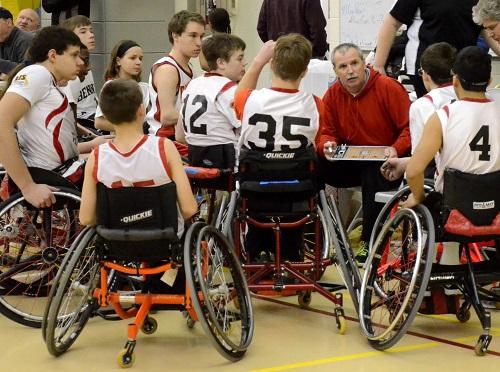

A new study released late last year places the total economic impact of sports tourism related to adapted sports and parasports nationwide somewhere between $80.5 million to $134.2 million. (And with the Paralympics, not to mention widespread TV coverage, coming this summer, look for that to grow).
The first-of-its-kind study, conducted by All In Sport Consulting in partnership with Stitch Marketing Research and the Huddle Up Group, involved the participation of 55 adapted sports organizations that shared expenditure and budget data in an effort to better understand and project economic trends for the overall market.
Because those organizations account for one-fifth to one-third of the total number of adapted sport organizations in the United States, their data was extrapolated to arrive at the estimated total economic impact of adapted sport events.
“We know the growth of the adapted sport industry has been dramatic over the last decade or so, but there’s never been a formal study conducted to measure its true economic footprint,” Dawna Callahan, founder and chief executive officer of All In Sport Consulting (which works to create opportunities for people with physical disabilities), said in a statement. “We wanted to change that and put a stake in the ground this year to help us move from anecdotal to concrete evidence about both the current economic picture and future outlook. We’re excited to release our initial findings and build on this knowledge in the years ahead.”
“This baseline information will help shape future research in this arena,” added Jon Schmieder, founder and chief executive officer of Huddle Up Group, a sports tourism consulting firm.
The findings were presented at the virtual 2020 Adapted Sport Leadership & Business Symposium.
This news comes as adapted sports organizations around the country are returning to hosting in-person outdoor activities. Oregon Adaptive Sports, a nonprofit organization based in Bend, Ore., opened registration for winter sports in late November for programs that began in December and January with smaller capacities than usual at two area ski destinations, Mt. Bachelor and Hoodoo Ski Area. “Adaptive, literally, is our middle name,” OAS executive director Pat Addabbo told KTVZ.com. “When the pandemic hit, we knew — we got this.”
On the other side of the country, in New Hartford, Conn., Ski Sundown is one of three host sites for the STRIDE Adaptive Sports skiing program and offers lessons five days a week. “I just love the idea of helping people with disabilities get the most out of life,” Micah Cutler, an occupational therapist from Albany, N.Y., and an adaptive sports volunteer at Ski Sundown, told the Hartford Courant.
“Our main goal is for the most independence the participant can have, whether they need a sit ski or they don’t,” added Karen Cook, director of the STRIDE program at Ski Sundown. “We have a woman who has a leg amputated; she’ll be on a three-track, one ski and two outrigger poles. We have a lot of people with developmental delays.”
While ski destinations are helping area residents with adapted sports needs hit the slopes, large-scale adapted winter sports competitions aren’t quite ready to return.
The 2021 Toyota-USA Hockey Disabled Hockey Festival, for example, originally was slated for this April in Pittsburgh but will now be held virtually from April 12-17. The largest event of its kind, the event typically takes place over two weekends in a different part of the country each year and brings together all six disabled hockey disciplines: Blind Hockey, Deaf/Hard of Hearing Hockey, Sled Hockey, Special Hockey, Standing/Amputee Hockey and Warrior Hockey.
USA Hockey intends to stage the 2022 Toyota-USA Hockey Disabled Hockey Festival in Pittsburgh, while the 2023 event will take place in St. Louis.
“We’re certainly disappointed to not be able to host the Festival in person this season,” J.J. O’Connor, chair of USA Hockey’s Disabled Section, said in a statement. “But with safety concerns surrounding the pandemic, it’s the best decision for all involved. We’re excited, however, to host a fun virtual event, and more details on that will be coming soon.”
When in-person adapted sports competitions do return, All In Sport Consulting’s survey results might be just the encouragement sports tourism officials need to become more intent on hosting such events.
“Without these insights — which lead to tangible goal setting and validation for investment — all involved [in adapted sports-related tourism] end up guessing,” Nate Heckman, president of Stitch Marketing Research, said in a statement. “We’re hoping to see these insights serve to increase cooperation and real outcomes for adapted and parasports in the U.S.”

